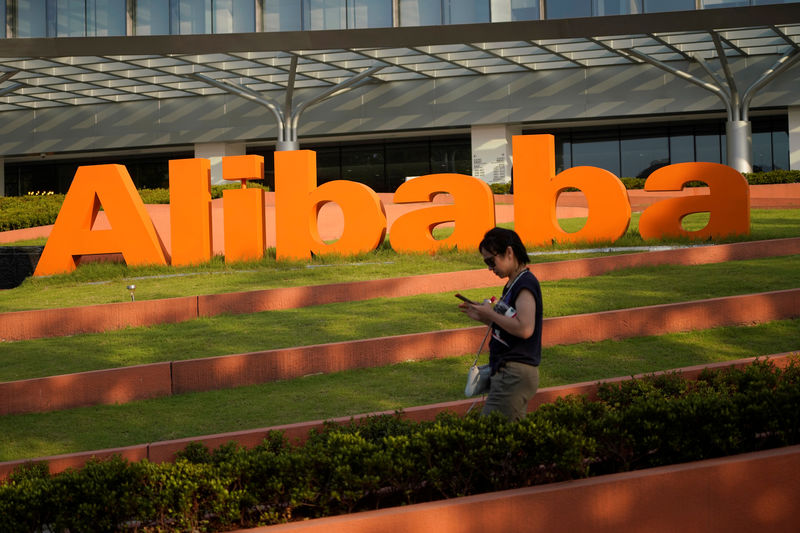This post was originally published on this site
https://i-invdn-com.akamaized.net/news/LYNXNPEE8A0G3-ORUBS_M.jpg © Reuters. Alibaba Says Revenue Growth to Be Negatively Impacted From Virus
© Reuters. Alibaba Says Revenue Growth to Be Negatively Impacted From Virus(Bloomberg) — Alibaba (NYSE:) Group Holding Ltd. warned that revenue growth will be negatively impacted in the current quarter because of the coronavirus that has killed more than 1,300 in China.
The Chinese e-commerce giant made the comments after reporting revenue for the December quarter that surged to 161.5 billion yuan ($23.1 billion), versus projections for 159.5 billion yuan. The company reported a 58% rise in net income to 52.3 billion yuan.
But Chief Executive Officer Daniel Zhang and Chief Financial Officer Maggie Wu also focused on fallout from the deadly virus and its effect on employees, suppliers and merchants. Alibaba is the first major Chinese technology corporation to report results since the epidemic emerged in January.
It is “really difficulty to have an estimate on March quarter” because it is only halfway through period, Wu said in a conference call after the results. “Overall revenue will be negatively impacted.”
Zhang explained that many merchants that work with the company have not been able to return to normal operations because of a shortage of employees. He warned that the core e-commerce business suffered a negative impact in the first two weeks after the Lunar New Year holiday. Restaurant orders and travel bookings have also taken hits.
“It will present near term challenges to Alibaba’s businesses across the board,” he said on the conference call, adding that there will also be opportunities.
Alibaba is rolling out special programs to support merchants, including lowering the fees it charges and providing subsidies for delivery personnel. Zhang said the company is trying to keep its own workers safe, including having many work from home.
“We took every effort to protect the safety of our employees,” he said.
Alibaba shares slid about 3% in pre-market U.S. trading.
Already, China’s most valuable corporation has struggled to sustain growth during an economic slowdown in its home market, and is now grappling also with the uncertainty of the coronavirus outbreak. While widespread home confinement is spurring demand for online services from grocery delivery to office apps to streaming entertainment, the disease is snarling nationwide transport and threatens in the long run to dent the consumer spending Alibaba depends on.
“There’s certainly some short-term challenges as the merchants and delivery networks are all bottlenecked,” Hong Kong-based Bernstein analyst David Dai said before the earnings were released. “But in the mid to long term, people are getting more used to shopping online. Grocery, the most difficult-to-penetrate segment, is also moving online because of this.”
Read more: Tencent’s $127 Billion Rally Bolstered by Work-From-Home Masses
This week, the company declared a waiver of some service fees for merchants on its main direct-to-consumer Tmall platform to help those struggling with the fallout from the outbreak. That may further depress the top-line in 2020.
What Bloomberg Intelligence Says
Alibaba’s decision to waive platform service fees in the first half of the year, to support Tmall merchants, not only dampens revenue, but also signals that online retail may not be immune to China’s coronavirus outbreak. This increases the possibility of downbeat guidance for the March and June quarters in the company’s earnings report on Thursday.
– Vey-Sern Ling, analyst
Click here for the research.
Read more: Tencent, Alibaba Office Apps Find Fans in Virus-Affected Schools
Alibaba has shed 1.4% of its value since a broader Chinese selloff began in January, underperforming arch-rival Tencent Holdings Ltd., which as a mobile gaming and social media operator is better shielded in the short run from the epidemic.
Read more: Coronavirus Outbreak Drives Demand for China’s Online Grocers

